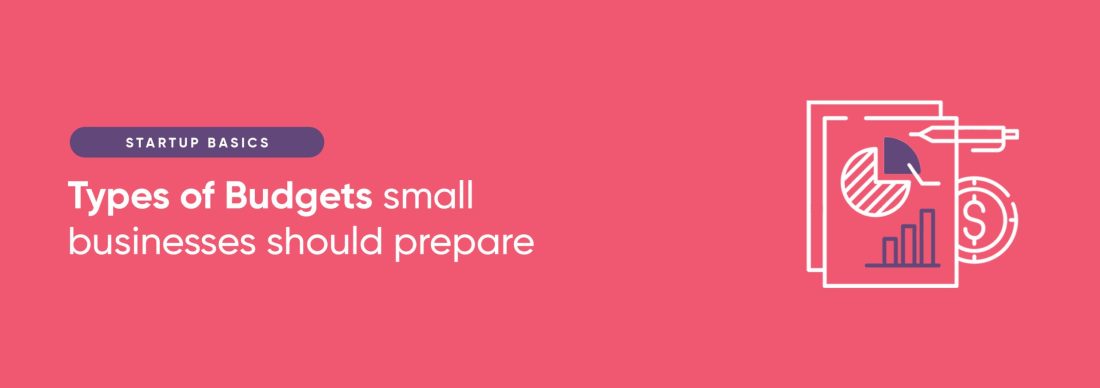Types of Budgets Small Businesses Should Prepare
Jul 10, 2023 | 8 Min Read


Jump to Sections
Stay updated
with our Blogs
We will keep you updated about our latest blogs
Share This Blog
The Significance of Budgeting for Small Businesses
Before discussing the various types of budgets, entrepreneurs should first understand the significance of budgeting for their businesses.
Budgeting can help businesses with the following tasks:
- Setting Financial Targets: Budgeting assists businesses in setting realistic financial goals, providing a benchmark for performance evaluation.
- Effectively Allocating Resources: Budgeting ensures the efficient allocation of funds throughout the different areas of the business, allowing for the optimal utilization of resources.
- Identifying and Monitoring Expenses: Budgeting also helps businesses identify unnecessary expenditures and develop cost-cutting strategies for financial success.
- Planning for Growth: By analyzing expected revenues and costs, businesses can gain valuable insights into the growth initiatives of the business and make informed decisions to support their growth measures. Any deviations from the planned budgets can be assessed, while strategies can be implemented to curtail any variations in the future.
With the assistance of a top accounting firm such as Accountimize having comprehensive knowledge of creating and managing a company’s financial statements, small businesses can receive professional guidance in budget planning and achieve their financial goals successfully.
Strategic Sales Budgeting for Small Businesses
The sales budget forecasts the revenues of the company over a specified period (typically a year). These forecasts are made using historical data, future expectations, and objectives of the business, as well as economic indicators, allowing small businesses to allocate their resources accordingly. Regular monitoring, adjustments, and analysis of variances ensure that the budget stays on track.
By collaborating with the sales team and leveraging technology, the effectiveness of sales budgets is enhanced, allowing for more efficient inventory management and production planning.
Effective Operating Expenses Budgeting
Want to learn about the next steps for growing your business ?
Mastering Cash Budgeting for Financial Stability
A cash budget provides a comprehensive plan for managing the inflows and outflows of cash for a business. It tracks all cash flows of the business over a specific time, providing a clear picture of the business’s liquidity position. By accurately projecting cash flows and considering factors such as the timing of payments and receipts, businesses can efficiently allocate resources, maintain liquidity, as well as address any cash flow gaps.
Monitoring and analyzing the cash budget enables business owners to make informed decisions about investment opportunities, efficiently manage working capital requirements, and make timely payments of expenses and liabilities. A well-executed cash budget can help businesses achieve financial stability and avoid potential challenges.
Essential Budgets Beyond Sales and Expenses
Although the sales, operating expenses, and cash budgets are among small businesses’ major annual budgets, some other budgets should also be considered depending on the business’s individual requirements. The following budgets should be considered:
- Capital Expenditure Budget: The capital expenditure budget outlines the planned investments in non-current assets such as property, equipment, or machinery. This budget analyzes the financial impact of such investments and enables businesses to determine the funds required for this expenditure.
- Personnel Budget: This budget focuses on labor costs such as wages, training costs, and benefits. It ensures businesses plan their personnel requirements accordingly and can ensure staffing levels are as per budget.
- Marketing Budget: The marketing budget determines the resources available for marketing and advertising efforts and enables businesses to plan and execute effective marketing strategies while optimizing the return on investment.
Streamlining Small Business Budgeting with Accountimize
Developing and managing budgets effectively can be a challenging task for small businesses. To relieve the burden of small business owners, we at Accountimize offer a comprehensive range of financial services including budgeting and management reporting, financial planning and analysis including revenue and expense trend analysis, and cash flow projections.
So, place a call to partner with us to pave the path to financial success with confidence.
Book a Discovery call


Stay updated
with our Blogs
We will keep you updated about our latest blogs



